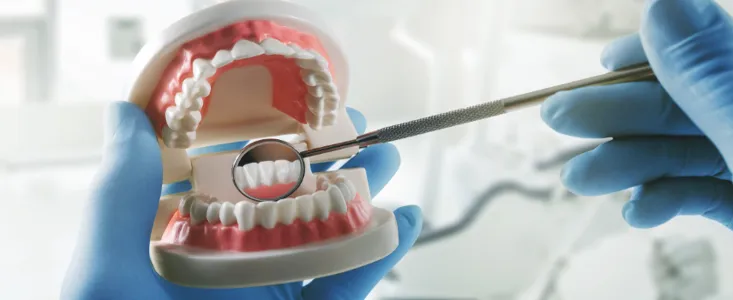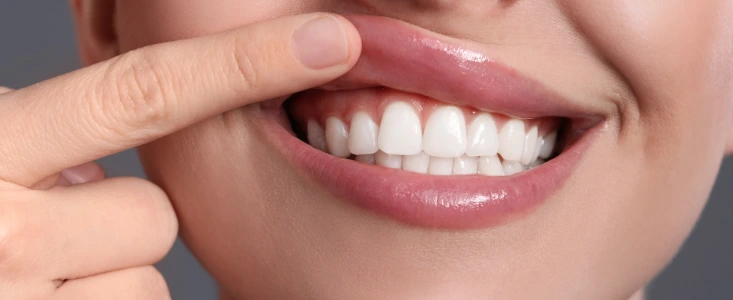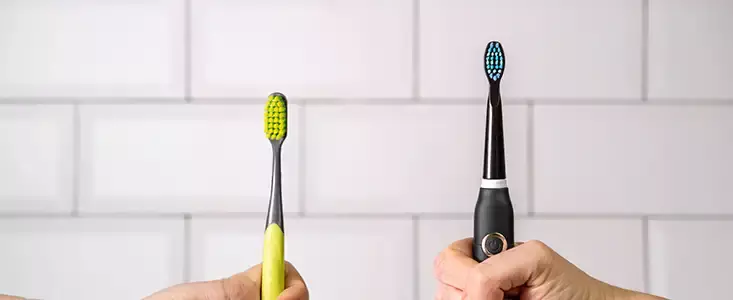You diligently brush your teeth twice a day, but flossing is not a part of your regular routine. You may wonder if flossing your teeth actually makes a difference. We’re here to tell you that, yes, flossing matters. When flossing is a consistent part of your oral hygiene, there are many benefits to your dental health. If you opt out of flossing, you are at risk for multiple health problems.
Cavities
Cavities occur when food particles, bacteria, and plaque are not removed. While correctly brushing your teeth protects them from unwanted buildup, it is not sufficient alone. Toothbrushes cannot remove these substances from between your teeth. Over time, bacteria grows between your teeth and begins to eat away at your tooth enamel, creating holes–cavities–in the surface of your teeth. Cavities can spread to more teeth and infect multiple layers of your teeth. Flossing is a simple but effective way to remove plaque and bacteria from hard-to-reach places that your toothbrush overlooks.
Gum Disease
When poor dental hygiene habits form, plaque builds up and hardens, turning into tartar. Tartar can only be removed by a professional dental hygienist. But when plaque buildup hardens around the gums, the gums become swollen and bleed easily. This tartar is the first sign of gum disease and can have lasting implications for your dental health if left untreated. Painful chewing, tooth decay, and tooth loss are some of the results of gum disease. All of these can be easily avoided when flossing is part of your daily routine.
Other Health Problems
Our bodies function as one entity. Oral problems such as gum disease directly affect your overall health. Untreated gum disease can lead to other problems such as diabetes, heart disease, kidney disease, respiratory disease, stroke, and premature birth. When you floss regularly, you take care of your teeth and gums and in turn, take care of your whole body.
How to Floss Correctly
We recommend flossing once a day, preferably at the end of the day. Including flossing in your nighttime routine ensures plaque and bacteria do not sit on your teeth while you sleep. Follow these guidelines to make sure you’re properly flossing:
- String out 8 inches of floss
- Wrap one end around your index finger on your left hand and wrap the other end around your finger on your right hand
- Place your index finger on the center of the floss to keep it steady
- Gently press the floss between your teeth
- Hold the floss against one side of your tooth and gently rub the floss up and down
- Rinse your floss if food particles or plaque comes out from between your floss
- Repeat the process as you rub the floss against each side of every tooth
- Don’t forget both sides of your back teeth
- Rinse your mouth and throw the floss away. Do not use the same string of floss multiple times
Schedule an appointment with us at Atkins & Anderson, DDS if you have concerns about your oral hygiene or have any cavities or symptoms of gum disease. It doesn’t matter how long it’s been since you’ve seen a dentist or flossed your teeth, call us. There’s no judgment here! We want to help you be as healthy as possible and protect your teeth and gums from future issues.
Share
How Does Oral Health Affect Overall Health? Poor oral hygiene allows harmful bacteria in your mouth to grow, enter your bloodstream, and travel to other parts of your body. This spreading of bacteria can trigger inflammation and infections, leading to serious health issues. What Health Issues Result from Poor Oral Health? Recent research shows the
Healthy gums are the foundation for a healthy smile because they support and protect your teeth. That’s why gum health is essential for a bright and beautiful smile. Here are some six tips to help keep your gums (and smile!) healthy. Brush Your Teeth Twice a Day Brushing your teeth twice daily is crucial for





